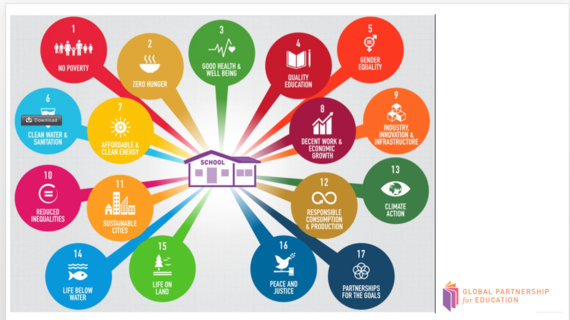Almost a year ago, the nations of the world came together to create 17 Sustainable Development Goals (SDGs) to be met in 15 years, by 2030. One of these goals, Goal 4, seeks to provide universal access to a quality pre-K, primary and secondary education. We in the global education field feel strongly that education holds a key to attaining the other SDGs.
And to achieve this admirable goal, the International Commission on Financing Global Education Opportunities was created to generate ideas, policies and programs to find the financing required to achieve it.
This commission, having changed its name to the Education Commission, is scheduled to launch its first year's report on September 18, 2016. In anticipation of this report, it's important to examine the financing issues that need to be addressed if a quality education is to be globally accessible in 15 years. 
The Global Campaign for Education (GCE) has outlined some of these issues in a newly released briefing in advance of the Commission's report. GCE argues that the Commission must:
1)Confirm existing agreed-upon principles specified in earlier agreements: work on the basis that education is a human right and that specific targets, means of implementation and indicators have been agreed-upon;
2)Ensure that a quality basic education is available free;
3)Insist that education must be available through a public education system and that governments must be expected to provide resources for this, rather than out-source education provision to for-profit corporations that often operate outside of government regulation and inconsistent with human rights law;
4)Argue for sustained financing for qualified and well-trained teachers--rather than short-term or one-off surges that address a only short-term funding need;
5)Include recommendations that education solutions must be locally inclusive of all stakeholders, including teachers, parents, and civil society coalitions, so that education is locally "owned," and when global financial resources are available they should be channeled through the Global Partnership for Education;
6)Advocate for learning outcomes that go beyond easily measured basic literacy and numeracy to include citizenship, critical thinking, technology skills, and other skills that are deemed critically important in the 21st century;
7)Maintain that local government budgets be scrutinized to ensure that sufficient funds are allocated to education with a goal of 20% of national budgets;
8)Ensure that local governments are actively increasing their overall budgets through domestic tax revenues and an end to harmful tax incentives awarded to the private sector, both domestic and foreign;
9)Argue for education funding that focuses on equity to ensure that all are included, including disadvantaged groups, and that all have access to qualified, well-trained and compensated teachers;
10) Insist that governments be held accountable so that funds are spent effectively and transparently on actual teaching and learning
We in the Global Campaign for Education will be looking for a report from the Education Commission that includes these key points to ensure universal and equitable access to a quality education